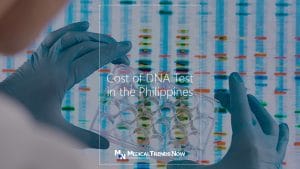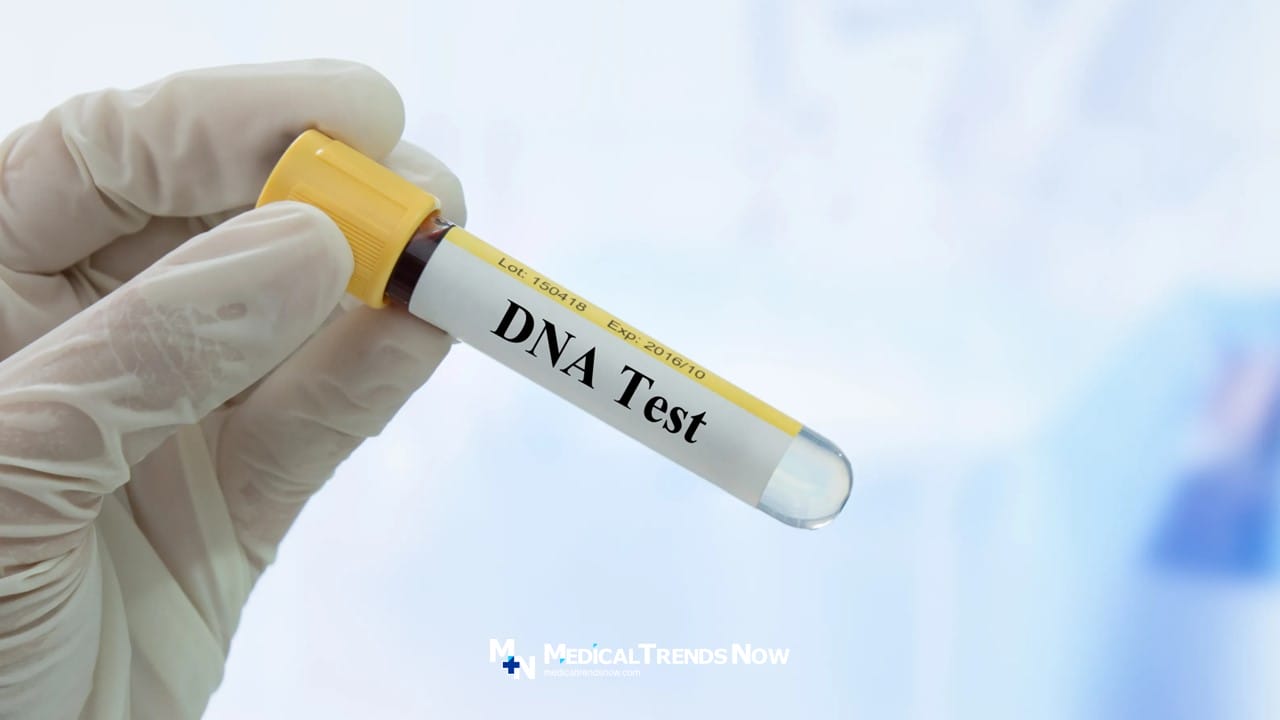Table of Contents
Do you want to know how much is a DNA Test in the Philippines? What are the procedures, and why do you need genetic testing? This article will explain the costs, benefits, and reasons for Filipinos to take genetic testing.
What is a DNA Test?
A DNA test is a way of determining the genetic makeup of a person, an organism, or tissue.
The test can identify genes, gene variants, and mutations.
A DNA test can also determine the paternity of a child or the identity of a deceased individual.
How Much is a DNA Test in the Philippines?
A DNA test, also known as genetic testing, is a procedure that determines the genes an individual has. This information can be used to establish paternity, detect genetic disorders and diseases, and for other reasons. The cost of a DNA test varies depending on the laboratory performing the test and the type of test requested. In the Philippines, the price ranges from ₱9,500 to ₱27,500, depending on the type of test.
Find out how much is a DNA test in the Philippines from these sample genetic testing types:
- DNA for legal / immigration tests is between ₱9,500 to ₱27,500
- DNA testing is around ₱9,500 – ₱15,000
- DNA Grandparentage test from ₱18,750 above
How Long Does it Take to Get the DNA Test Results in the Philippines?
When you order a DNA test (genetic testing), you want to know how long it will take to get your results back. The answer to that question depends on the type of test you are taking and the company you are using.
Most DNA tests in the Philippines will take two weeks to complete, but some can take up to six weeks. If you need your results sooner, many medical center hospitals and medical laboratories offer rush processing for an additional fee.
How is Genetic Testing done in the Philippines?
When it comes to DNA testing in the Philippines, there are a few different ways that this can be done.
- The first way is through a blood test. This is where the DNA is extracted from the white blood cells in the blood.
- The second way is through a buccal swab. This is where a cotton swab is rubbed inside of the cheek to get cells from the lining of the mouth.
- The third way is through a paternity test kit. This is where a person takes a sample of their own DNA and sends it in to be tested.
What are the Uses of DNA Test?
DNA testing (genetic test) is commonly used to determine paternity. A DNA test can also be used to determine the ancestry of a person or animal. A DNA test in the Philippines can also be used to identify a deceased person.
Reasons for Genetic Testing in the Philippines
There are many reasons to take a DNA test. Some people want to know more about their family history, while others want to find out if they are related to any celebrities.
DNA tests in the Philippines can also be used for paternity testing or to determine the ancestry of a person or animal.
In addition, DNA tests can detect genetic disorders and screen for potential health risks.
Why Do You Need a DNA Test?
A DNA test in the Philippines is a scientific way of determining a person’s ancestry and genetic makeup. It can determine the gender of the person tested, their parents, and even their grandparents. Genetic testing can find out if two people are related.
The test can be administered by taking a swab of saliva from inside the person’s cheek or by using a blood sample.
The benefits of having a DNA test for Filipino are many. For instance, if you are adopted and want to find your birth parents, a DNA test can help you do that. If someone tells you that you are not the father of a child, but you want to be sure, a DNA test will give you that answer. Here are some of the reasons why. (but check how much is a DNA test in the Philippines for each type).
Diagnostic testing
Diagnostic testing is a process to identify a particular disease or condition in a person.
This type of testing can be done through different methods, including blood tests, biopsies, and imaging scans. In some cases, diagnostic testing may also involve the use of DNA sequencing.
Presymptomatic and predictive testing
Presymptomatic testing in the Philippines is a process that can identify people who are at risk of developing a specific genetic disorder before they experience any symptoms.
Predictive testing is the use of presymptomatic testing to determine if someone will develop a particular disorder in the future.
Both types of DNA tests can assess the risk of developing a variety of genetic disorders, including cancer.
Carrier testing
Carrier testing is a blood test used to determine whether a person is a carrier of a particular genetic disorder. A carrier is someone who has the gene for a disorder but does not show any symptoms of the disorder. Carrier testing can help couples planning to have children know if they are at risk for having a child with a genetic disorder.
Pharmacogenetics
Pharmacogenetics is the study of how genes affect a person’s response to drugs. This area of genetics has been around for many years but has only recently been used in DNA tests in the Philippines.
Pharmacogenetic tests in the Philippines can help Filipino doctors choose the best drug and dosage for their patients. The test looks at a person’s genes to see if they have any variants that could affect how they respond to certain drugs.
Some variants make people more sensitive to certain drugs, while others make them less susceptible. Knowing about these variants can help doctors choose the right drug and dose for their patients.
Pharmacogenetic tests are not yet common, but they are becoming more popular. There are several companies that offer pharmacogenetic testing, and some insurance plans cover the tests.
Prenatal testing
Prenatal testing in DNA test in the Philippines is a method of screening for genetic abnormalities before birth.
The test can be done by taking a sample of the mother’s blood or by extracting cells from the fetus. The most common type of prenatal test is chorionic villus sampling (CVS), which is done between 10 and 13 weeks of pregnancy. This test can identify chromosomal disorders, such as Down syndrome, and genetic diseases, such as cystic fibrosis.
Newborn screening
A newborn screening DNA test in the Philippines is a blood test that screens for genetic disorders in a baby. The test is typically done within the first 48 hours after birth. This type of test can identify more than 50 different genetic disorders.
Preimplantation testing
Preimplantation genetic diagnosis (PGD) is a type of genetic testing in the Philippines that is used during in vitro fertilization (IVF). PGD can diagnose genetic conditions in embryos before they are implanted in the mother’s uterus. This testing can help parents to decide whether or not to implant an embryo that has a known genetic condition. PGD can also be used to select embryos that have the desired characteristics, such as gender or certain health conditions.
How do you prepare for a DNA Test in the Philippines?
When you are preparing for a DNA test in the Philippines, there are some essential things to keep in mind.
First, you will need to gather the necessary materials. This includes the sample that will be tested, as well as any paperwork or identification you may need.
It is also essential to make sure that you understand the testing process and what the results could mean.
If you have any questions, be sure to ask your doctor or the testing facility (medical center, clinic, hospital, or laboratory) before the test is administered.
What is the Procedure of a DNA Test in the Philippines?
When it comes to taking genetic testing, the first thing you need to do is choose a reputable testing company. You can find many medical hospitals, clinics, and laboratories online, and you can also ask your Filipino doctor or other Pinoy healthcare professionals for a recommendation.
Once you have chosen a hospital or medical laboratory, you will need to order a kit. The kit will include everything you need to collect your DNA sample. Be sure to use the provided materials and to follow the instructions exactly. Once you have received the kit, read the instructions carefully. Then, follow the instructions to collect your sample.
Once you have collected your sample, return the kit according to the instructions.
The medical center, hospital, clinic, or laboratory will then process your sample and send you the results. Most DNA tests take about two weeks to complete.
What are the Types of DNA Tests in the Philippines?
There are different types of DNA tests in the Philippines. Paternity DNA testing is the most common type of DNA test. It can determine whether a man is the father of a child.
Maternity DNA testing can determine whether a woman is the mother of a child. Sibling DNA testing can determine if two or more siblings share the same parents. This type of test can also be used to find out how much they share in common.
Grandparent DNA testing can determine if a grandparent is the biological grandparent of a child. This type of test can also be used to find out how much they share in common.
Why is DNA Testing Important?
One of the most critical aspects of determining identity is through DNA testing. This is a process that takes genetic information from a person and compares it to another sample to see if they are related. It can also be used to determine paternity in certain cases.
While there are some Filipinos who may be hesitant to undergo this type of testing, there are many reasons why it is crucial. One reason is that it can help to provide closure for Filipino families who have been searching for answers about their roots.
DNA testing can also identify human remains, which can help with criminal investigations.
In addition, it can confirm or refute family legends about ancestry. DNA testing can also be beneficial for those interested in learning more about their health. This type of testing can help to identify specific genetic markers that could lead to health concerns down the road.
What Does a DNA Test Tell You?
A DNA test is a great way to learn about your family history and ancestry. By examining the genetic information passed down from parents to children, you can discover interesting facts about your lineage. Additionally, a DNA test in the Philippines can also be used to identify potential relatives.
If you’re curious about what a DNA test can tell you, here are some of the things it can reveal:
- The ethnicity of your ancestors. A DNA test can provide insight into the geographic origins of your ancestors. This information can be helpful in tracing your family tree and learning more about your heritage.
-
Your genetic health risks. A DNA test can also reveal information about your risk for certain diseases and conditions. This knowledge can help you take steps to protect your health and potentially prevent serious illnesses down the road.
-
The identities of your relatives. A DNA test can reveal information about the names your parents and grandparents used when they were first married. If you have a strong desire to know more about your family history, a DNA test can help you learn more about the identities of your ancestors.
https://www.youtube.com/watch?v=SJMuMeB1Y4k
Conclusion: How Much is a DNA Test in the Philippines and Reasons You Should Take a Genetic Testing
How much is a DNA test in the Philippines? The answer is between 9,500 pesos to 27,500 pesos, depending on the type of test. There are many benefits to taking a DNA test. It can help Filipinos learn about their personal genetics and ancestry, and it can also be used for medical purposes. If you are considering taking a DNA test, be sure to do your research so that you can find the right test for you.

Sources
- National Library of Medicine – Genetic Testing
- NHS UK – Genetic and genomic testing
- National Human Genome Research Institute – What is Genetic Testing
- Bureau of Criminal Apprehension – DNA testing process
- AncestryDNA – Ancestry® Offer Comparison Chart
- Cancer.net – Genetic Testing for Cancer Risk
- CDC – What You Need to Know about Genetic Testing
- Cleveland Clinic – DNA Paternity Test
- Medicine Plus – Topics on Genetic Testing













